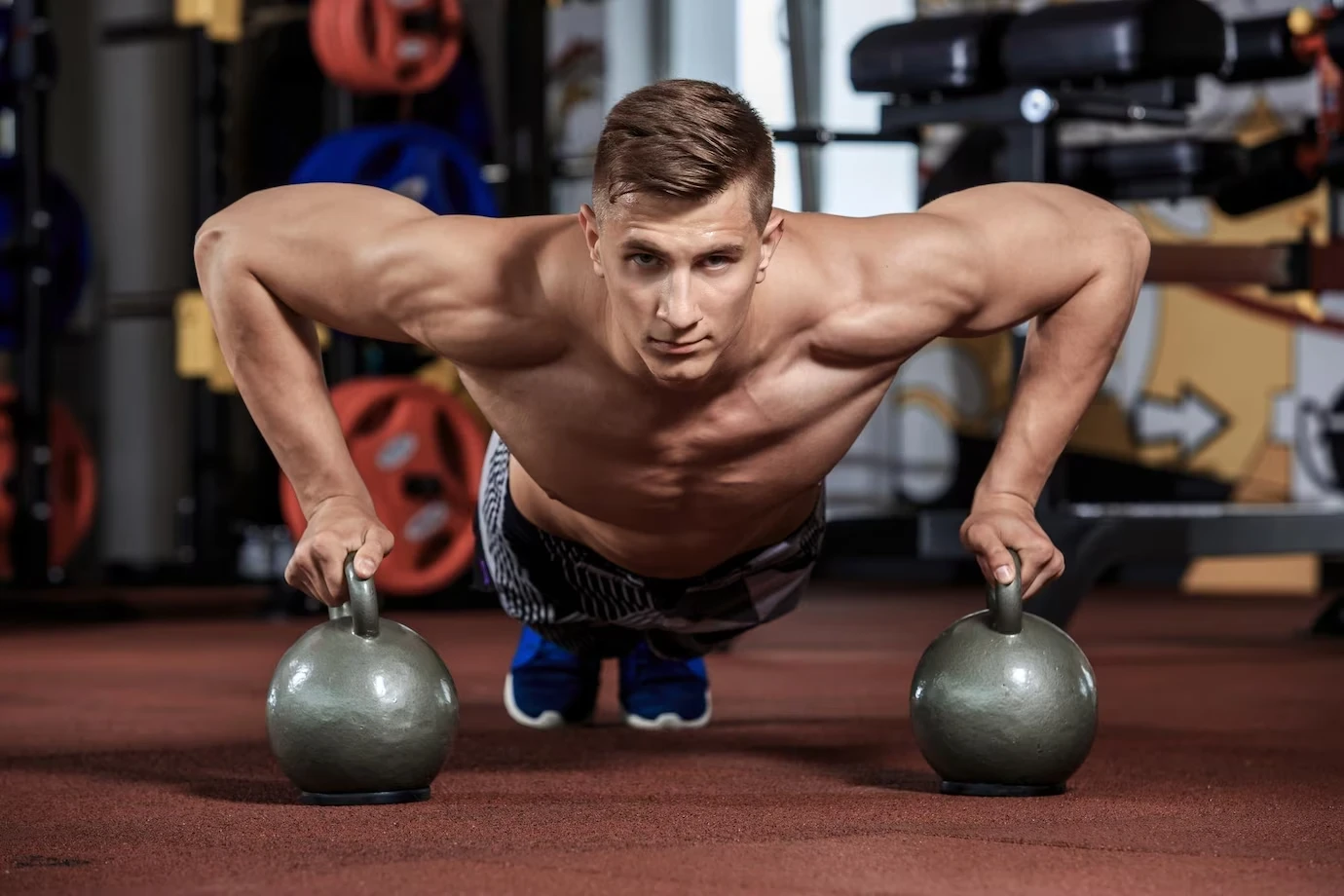Are you looking to take your bodybuilding goals to the next level? If so, then you know that nutrition plays a critical role in achieving success. A well-planned bodybuilding diet can help you build muscle mass, increase strength, and improve overall performance.
In this blog post, we will cover all the basics of creating a professional bodybuilding diet. We’ll dive into the importance of nutrition in bodybuilding, how to calculate your caloric needs and macronutrient distribution, what foods should be included in your diet plan and how meal timing impacts your overall results. We will also provide a sample 7-day meal plan and discuss the potential risks associated with a bodybuilding diet and how to mitigate them.
And lastly, we’ll discuss ways to adapt your diet plan according to your lifestyle and budget. So, let’s get started on building a healthier and stronger you!
Understanding the Basics of a Bodybuilding Diet
To understand the basics of a bodybuilding diet, it is crucial to recognize the importance of protein intake. Protein is essential for muscle growth and repair, with a recommended daily intake of around 1 gram per pound of body weight. Additionally, complex carbohydrates play a vital role in providing the energy needed for intense workouts. These carbs help replenish glycogen stores and maintain stable blood sugar levels.
- Healthy fats are another key component of a bodybuilding diet. They support hormone production and overall health. Good sources of healthy fats include olive oil, fatty fish, and nuts.
- Meal timing and frequency are significant factors in maximizing muscle growth. It’s recommended to consume multiple smaller meals throughout the day to ensure a constant supply of nutrients to the muscles. This promotes anabolism and minimizes catabolism.
- Lastly, tracking macronutrients and calories is essential for proper nutrition. By monitoring your caloric intake and macronutrient distribution, you can ensure that you’re meeting your nutritional needs while either maintaining, gaining, or losing body weight.
By understanding these basics and implementing them into your bodybuilding diet, you’ll be on your way to achieving optimal results and enhancing your physique.
The Importance of Nutrition in Bodybuilding
Proper nutrition plays a crucial role in bodybuilding, supporting muscle growth and facilitating fat loss. A balanced diet that includes protein, carbohydrates, and healthy fats is essential for achieving bodybuilding goals. Meal planning and tracking macronutrient intake are key to success in this sport. While supplements like protein powder and creatine can enhance performance, they should never replace whole food sources. To create an effective bodybuilding diet plan, it’s recommended to work with a registered dietitian or certified nutritionist who can personalize the plan based on individual needs and goals. By ensuring adequate intake of nutrients, bodybuilders can optimize muscle growth, manage body fat levels, and support overall health and well-being.
Creating a Nutritional Plan for Bodybuilding
Here are some tips on how to create a nutritional plan for bodybuilding:
- Set your goals. What are you hoping to achieve with your bodybuilding plan? Are you looking to bulk up, lean out, or simply improve your overall fitness? Once you know your goals, you can tailor your diet accordingly.
- Calculate your calorie needs. To build muscle, you need to be in a calorie surplus. This means that you need to eat more calories than you burn each day. You can use a calorie calculator to estimate your calorie needs, and then adjust your intake as needed.
- Track your macros. In addition to calories, you also need to track your macronutrients (protein, carbohydrates, and fat). Protein is essential for muscle growth, so you should aim to eat 1-1.5 grams of protein per pound of body weight each day. Carbohydrates provide energy for your workouts, so you need to eat enough of them, but not too much. Fat is also important for overall health, so you should aim to eat a moderate amount of it.
- Eat clean foods. When you’re bodybuilding, it’s important to eat clean, unprocessed foods. This means avoiding processed foods, sugary drinks, and unhealthy fats. Instead, focus on eating whole grains, lean protein, fruits, vegetables, and healthy fats.
- Eat regularly. Bodybuilders need to eat regularly throughout the day to support muscle growth and recovery. Aim to eat 3-6 meals per day, with snacks in between.
- Stay hydrated. It’s important to stay hydrated when you’re bodybuilding. Drink plenty of water throughout the day, especially before, during, and after workouts.
- Listen to your body. Pay attention to your body and how it feels after eating certain foods. If you notice that you feel bloated or sluggish after eating a certain food, it’s best to avoid that food.

Here is a sample bodybuilding meal plan:
Breakfast:
- Oatmeal with berries and nuts
- Eggs with whole-wheat toast and avocado
- Greek yogurt with fruit and granola
Lunch:
- Salad with grilled chicken or fish
- Soup and sandwich on whole-wheat bread
- Brown rice with vegetables and tofu
Dinner:
- Salmon with roasted vegetables
- Chicken stir-fry with brown rice
- Lentil soup with whole-wheat bread
Snacks:
- Protein shake
- Fruits and vegetables
- Nuts and seeds
This is just a sample meal plan, and you may need to adjust it based on your individual needs and goals. It’s important to experiment and find what works best for you.
What Foods Should Be Included in Professional Bodybuilding Diet?
Professional bodybuilders need to eat a diet that is high in protein, carbohydrates, and healthy fats. They also need to make sure they are getting enough micronutrients, such as vitamins and minerals. Here are some of the foods that should be included in a professional bodybuilding diet:
- Protein: Protein is essential for building and repairing muscle tissue. Good sources of protein for bodybuilders include lean meat, poultry, fish, eggs, dairy products, and protein powders.
- Carbohydrates: Carbohydrates provide energy for workouts and muscle growth. Good sources of carbohydrates for bodybuilders include whole grains, fruits, and vegetables.
- Healthy fats: Healthy fats are important for overall health and can also help to support muscle growth. Good sources of healthy fats for bodybuilders include nuts, seeds, avocados, and olive oil.
- Micronutrients: Vitamins and minerals are essential for overall health and can also help to support muscle growth. Good sources of micronutrients for bodybuilders include fruits, vegetables, whole grains, and dairy products.

Can Supplements Enhance the Effects of a Professional Bodybuilding Diet?
Yes, supplements can enhance the effects of a professional bodybuilding diet. However, it is important to note that supplements are not a substitute for a healthy diet and regular exercise. They can only help you reach your bodybuilding goals if you are already following a good diet and training regimen.
Some of the most effective supplements for bodybuilders include:
- Protein powder: Protein powder is a great way to increase your protein intake, which is essential for muscle growth and repair. Whey protein is the most popular type of protein powder for bodybuilders, as it is quickly digested and absorbed by the body.
- Creatine: Creatine is a natural substance that helps to produce energy during high-intensity exercise. It has been shown to improve strength, muscle mass, and power in both athletes and bodybuilders.
- Branched-chain amino acids (BCAAs): BCAAs are essential amino acids that cannot be produced by the body. They are important for muscle growth and repair, and they can also help to reduce muscle fatigue during exercise.
- Beta-alanine: Beta-alanine is a non-essential amino acid that helps to increase muscle carnosine levels. Carnosine is a compound that helps to buffer lactic acid, which is a byproduct of exercise that can cause muscle fatigue.
- Fish oil: Fish oil is a good source of omega-3 fatty acids, which have been shown to have a number of benefits for bodybuilders, including reducing inflammation, improving recovery, and increasing muscle mass.
It is important to note that not all supplements are created equal. Some supplements are more effective than others, and some may even be harmful. It is important to do your research and consult with a doctor or registered dietitian before taking any supplements.
If you are considering taking supplements to enhance your bodybuilding goals, it is important to choose the right ones for you and to use them safely. Talk to your doctor or a registered dietitian to get personalized recommendations.

Let’s Sum Up
In conclusion, creating a professional bodybuilding diet requires careful consideration of nutrition, caloric needs, macronutrient distribution, and meal timing. It is essential to include high-quality proteins, the right carbohydrates, and essential fats for muscle growth. Meal timing, especially pre-workout and post-workout nutrition, plays a crucial role in optimizing results. Designing a 7-day meal plan helps ensure consistency and adherence.
While supplements can enhance the effects of a bodybuilding diet, it is important to choose them wisely and consider potential health concerns. Lastly, adapting a bodybuilding diet to your lifestyle and budget is possible with proper planning and making smart choices. Remember, consistency and dedication are key to achieving your bodybuilding goals.



